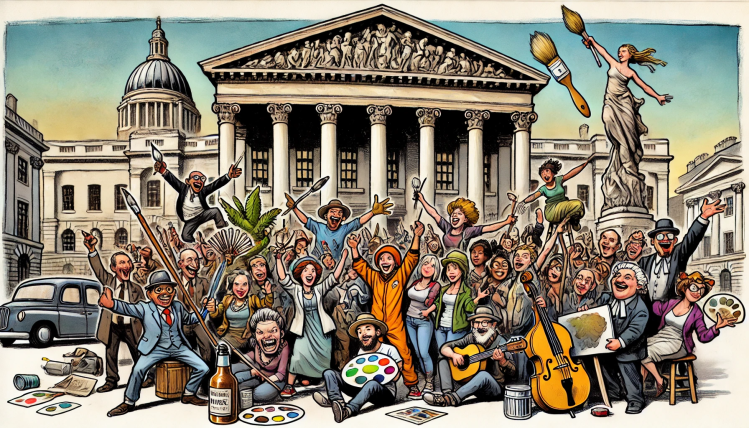- Artists’ class action lawsuit against AI companies advances to the discovery phase.
- The case involves allegations of copyright infringement by Midjourney, Runway, Stability AI, and DeviantArt.
- AI companies are accused of using copyrighted works without permission to train their models.
- The judge ruled that the case had sufficient grounds to proceed toward discovery.
- The discovery phase may reveal critical details about AI companies’ training datasets and operations.
Main AI News:
Visual artists involved in a class action lawsuit against leading AI image and video generation firms are celebrating today as their copyright infringement case advances to the discovery phase.
The lawsuit, filed under case number 3:23-cv-00201-WHO, was initially submitted in January 2023 and has since undergone several amendments, with portions being struck down, including in today’s ruling.
Artists such as Sarah Andersen, Kelly McKernan, Karla Ortiz, and others have accused Midjourney, Runway, Stability AI, and DeviantArt of unlawfully copying their work by offering AI image generator products derived from the open-source Stable Diffusion AI model. This model, co-developed by Runway and Stability AI, is alleged to have been trained on copyrighted materials without permission.
Judge William H. Orrick of the Northern District Court of California, which covers San Francisco and the epicenter of the generative AI industry, has not yet made a final ruling on the case’s merits. However, in his decision issued today, he stated that “the allegations of induced infringement are sufficient,” allowing the case to progress to the discovery stage. This phase could enable the artists’ legal team to access internal documents from the AI companies, potentially shedding light on their training datasets and operational processes.
“This is a case where plaintiffs allege that Stable Diffusion is built to a significant extent on copyrighted works and that the way the product operates necessarily invokes copies or protected elements of those works,” the judge states.
Conclusion:
This development signals a significant shift in the legal landscape surrounding AI and intellectual property. As the case progresses, the AI industry could face increased scrutiny regarding its practices, potentially leading to stricter regulations and reevaluating how training data is sourced and used. For the market, this might result in heightened operational costs for AI firms, legal risks, and a push for more transparent practices. On the other hand, it could also drive innovation in creating AI models that respect intellectual property, ultimately fostering a more sustainable and ethically sound industry.

